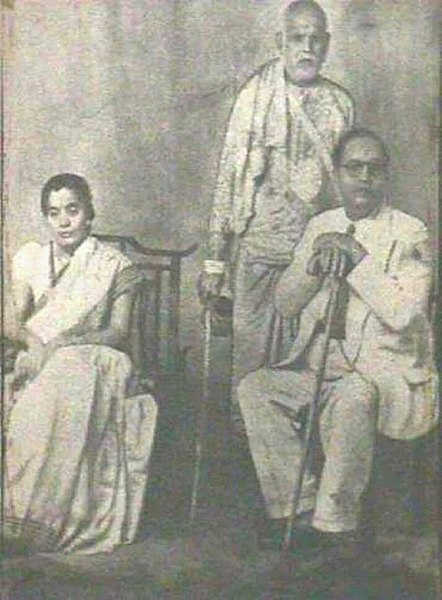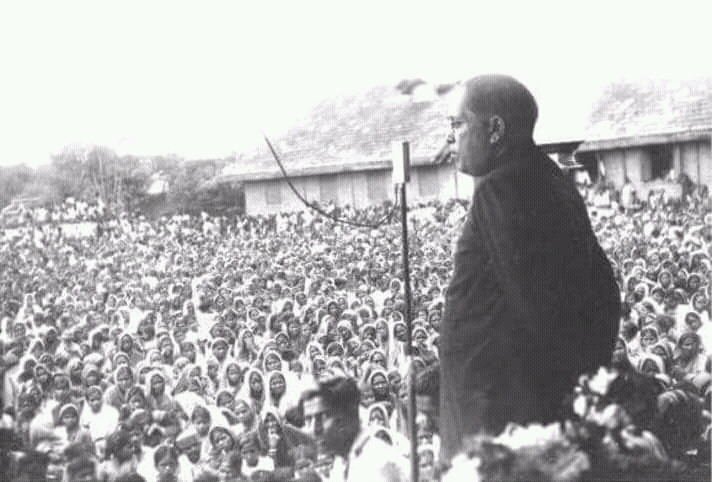Bhimrao R Ambedkar Babasaheb Ambedkar (b. 14 April 1891 — d. 6 Dec 1959) was one of the great leaders of India, not only social reformers, advocate but also a man who brought literacy in Dalit community. He constituted India’s law of justice for lower-class communities. He called as chief architect of constitution of India. In his view, the respect for society comes next but before that admiration to women irrespective of the culture, caste and nation. In his lifetime achievement, there are many things one couldn't even count. He was the only one who earned his matriculation from his…...
Sign in with Google to continue reading
💬 Meet Our Members

Antonius Bakker
Antonius "Ton" Bakker, born May 23, 1961, in the Netherlands, is a…

Dr. B.H.S Thimmappa
B.H.S. Thimmappa is a seasoned chemistry professional with extensive experience in developing…

Carl Scharwath
Carl Scharwath, has appeared globally with 210+ publications selecting his writing or…

Sindhu Gopalkrishnan
I love writing as I get to create something beautiful and touch…

Julia Orozco
Poet who love nature and writing poetry.
Tamizh Ponni VP
Tamizh Ponni VP is an ambivert who loves to express her skills…
Support independent journalism. Your membership keeps us going.

Babasaheb Ambedkar (b. 14 April 1891 — d. 6 Dec 1959) was one of the great leaders of India, not only social reformers, advocate but also a man who brought literacy in Dalit community. He constituted India’s law of justice for lower-class communities. He called as chief architect of constitution of India. In his view, the respect for society comes next but before that admiration to women irrespective of the culture, caste and nation.
In his lifetime achievement, there are many things one couldn't even count. He was the only one who earned his matriculation from his lower-caste community, moreover, who first completed his degree in economics. Thus, he did many more educations and graduate programs. Ambedkar was not just a jurist, economist, social reformer, politician but also Independent first India’s Minister of Law and Justice.
Many schools, colleges and universities as well as small Dalit shops are named after his name. Dr Ambedkar brought justice to lower-caste and protected from the crisis of economic situation and help to abolish the caste system. He promised to get a good education, job and social status in India for lower treated groups. The man who born in Dalit Buddhist one could hardly get a good education, under the lanterns he finished his education in his early days of schooling. Ambedkar had deep and caring thoughts for his fellow communities.
“There should be a separate electoral system for untouchables and other marginalized communities.”
Ambedkar (in his opinion)

The Scholar statesman also had gone wrong in people’s opinions when he was strongly criticized for being personal on the caste system (especially on the side of his favourite, own caste system). That was put forward claiming that he was against secularism. A great combatant (for demolishing the caste system) finally proved Gandhi wrong in many aspects.
Listen to Ambedkar's Real Voice who proved Gandhi had been racist and never cared for Dalit and Lower-Caste communities.
Ambedkar on Gandhi
As per Ambedkar, Mahatma Gandhi had never been a social reformer neither he did anything for Dalit. Responding to the reaction of Ambedkar Gandhi wrote:
“I am not eager to die. I am eager to live and commit untouchability to the flames. And if I have to die to see that glorious hour, I am ready to die. The mantra of my life consists in making preparations of it. To live while untouchability lives is like a cup of a poison to me.”
In Gujarati Magazine/newspaper-Harijan Bandhu 1833
Gandhi’s ideologies and thinking made him Mahatma but Dr Ambedkar never liked any Mahatma, and he is sick of a question his mind was poking him every time that, “Is Gandhi really Mahatma?”
In one of the Ambedkar’s Marathi publications in the year 1938 from his writing and speeches (Vol 17, part-2), foundation of Ministry of Justice and Empowerment.
“Is Gandhi Mahatma? I am sick of this question. There are two reasons why this question annoying me. Firstly, I hate all Mahatmas and firmly believe that they should be done away with. I believe their existence is a curse to the nation in which they are born. The reason why I say so is that they try to perpetuate blind faith in the place of intelligence and reason.”
Ambedkar wrote
The position that one gets is purely based on his karma but sometimes one’s thoughts could be different. Thus, that person would criticize for that one day.
Ambedkar was born in Dalit family (commonly used to called untouchables) brought literacy and power to Buddhist. This community of India was recorded the biggest socio-economic discrimination. Read the following quote from Babasaheb Ambedkar
I like the religion that teaches liberty, equality and fraternity
Dr. B R Ambedkar

They were always being ignored by other superior caste and their people.
The great politicians like Gandhi did not take a step ahead fight for poor caste system the way Dr Babasaheb did in his active years.
The students could not sit in the class and were hardly given attention by the teachers. The clear story of the Lower-Caste communities was that someone from higher status used to deal with Dalit from a distance. It was like pouring a glass of water in his cup from keeping some space.
[rb_related title="Also in This Issue" total="2"]
People from another community were not allowed to touch them, neither their glass nor the water from their pots.
Ambedkar was greatly influenced by John Dewey (John Dewey was an American philosopher, psychologist, and educational reformer whose ideas have been influential in education and social reform.) especially on his recommendable work of democracy, and he was one of the great followers of his ideology and philosophy.










